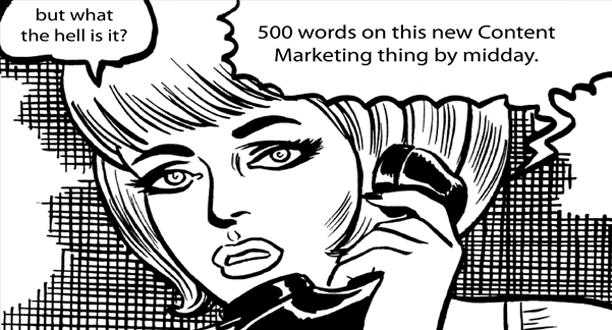
How To Make Social Media A “Tweet” Experience
June 28, 2013
Develop a Content Marketing Strategy in 5 Simple Steps
July 5, 2013Is your blog writing plan collecting dust bunnies? These days, SEO blog strategy isn’t about the quantity of your keywords or links, but the quality of your content. Google knows what it wants from your site. Now you will, too.
1. Don’t use images for important information.
 Instead of using images to display content (like a graphic at the top of your products page that says “Point of sale products”), use text and links as often as possible.
Instead of using images to display content (like a graphic at the top of your products page that says “Point of sale products”), use text and links as often as possible.
Graphics and banners may make your site prettier, but the Google crawler won’t recognize content that’s contained in images. Your prospective customers may never see that “Point of Sale Products” page if it isn’t indexed.
Tip: If you think images will enhance your content, use the “ALT” attribute to include some descriptive text about the image. Google will be able to recognize that.
2. Don’t stuff your site with keywords.
In their guidelines, Google discourages content marketing writers from “keyword stuffing”– or stuffing your site full of strategic words or numbers to improve your search result ranking. It’s okay to use keywords naturally and appropriately throughout your content, but it’s not okay to use them in a list or group or out of context.
Doing so is deceitful to search engine users. When they click on your site, they are expecting to gain more information about the words they searched for. They didn’t search for them just to see them in a long list.
In short: although you may think it will help, keyword stuffing will come back to bite you.
3. Avoid duplicate or scraped content.
Google knows you’re being deceptive when you deliberately post duplicate content in order to increase traffic or search engine ranking. Users feel they’ve had a poor experience when they see the same content repeated in their search results, Google explains in its webmaster guide. It aims to index pages with blog writing that is fresh, rather than regurgitated.
Sites who “scrape” content from other sites, often more reputable ones, in hopes of increasing their traffic, ranking or credibility are sorely mistaken. It will hurt your credibility or worse – get you in trouble for copyright infringement. Because Google wants to provide its users with the most useful and credible results, it rewards fresh content with higher search rankings than duplicate or scraped content.
4. Never, ever use link schemes.
Incorporating links intended to improve your site’s search engine ranking may send a red flag to Google that you are using a link scheme. A link scheme could involve the buying or selling of links that pass Page Rank, excessive link exchanging between you and another site or linking to web spammers – whether the links are to or from your site – among other poor practices.
Google maintains that link schemes negatively affect the quality of user search results and therefore violate its webmaster guidelines.
Tip: Use links the right way by linking to other relevant content. Google pays just as much attention to the sites you link to as the sites that link to you. Searchers and search engines alike appreciate it when you post appropriate content. They’re both likely to value your site more if they see it as a reliable source for relevant information.
5. Don’t create content for you; create content for your readers.
Self-promotional blogging pumped full of strategic SEO keywords doesn’t do anything for anybody. They don’t receive high rankings in search results and your site visitors would rather watch paint dry than read them.
Plus, Google knows when your blog strategy is simply using tricks to manipulate search engine results. And it knows when you’re not in it for your users – when you’re in it for you and your rankings.
The webmaster guide poses some soul-searching questions for site operators:
- Would you feel comfortable explaining what you’ve done to a website that competes with you, or to a Google employee?
- Does this help your users?
- Would you still do this if search engines didn’t exist?
Tip: Make your site stand out by blogging about unique, valuable and engaging topics that have your buyer personas’ best interests in mind. Let your readers decide that you are the best in your industry or field, rather than telling them so. People are more likely to return to a blog that interests or informs them than one that shamelessly self-promotes its own product.
If you haven’t caught on by now, the Google team really doesn’t like when you deceive its users. Don’t be a deceptive content marketing writer – instead, be a daring one. Dare to post frequent and fresh content that Internet users will find useful.




